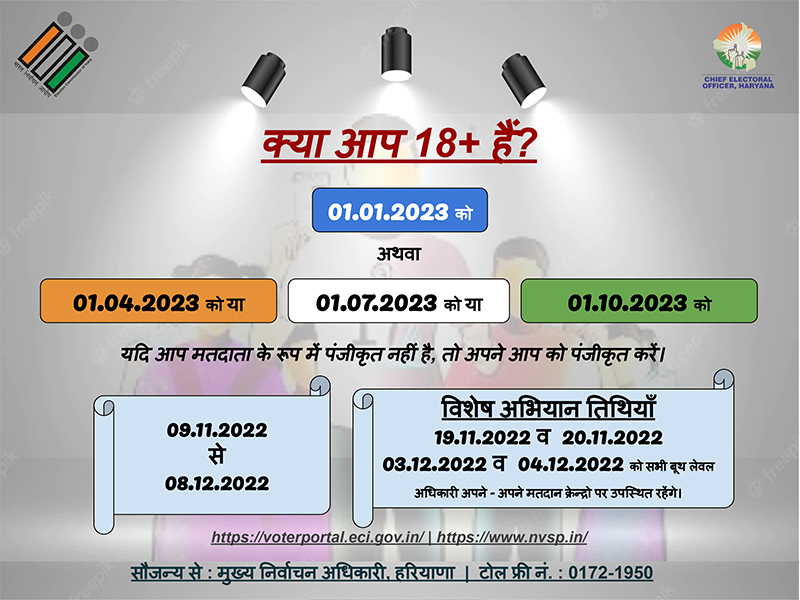
Business Analytics: Trends and Opportunities in 2022
The Pandemic has impacted a number of organizations across the globe. These organizations, irrespective of their business stature, have been grappling with unexpected challenges that range from financial, marketing, manpower, and strategic or operational arenas.
The CEOs of all these organizations have also realized that the future performance of their organizations depend upon the data-based decisions so they are focusing more on business analytics and the same fact is also emphasized by the survey report of the International Institute of Business Analytics (IIBA), 2021, that says that high performing organizations saw 65% ROI with 190% more use of analytics experts utilizing business data analytics practices.
Business analytics is one of the differentiating and unique reasons for the success of various organizations. Companies like Netflix, Uber, Airbnb, Amazon & Google have already used the power of analytics and achieved desired growth in their areas. Analytics is useful to handle all types of data whether it is massive or disorganized, stationary or in motion, and supports organizations to:
- Identify and define their problems
- Communicate with data and work on data visualization
- Predict future outcomes and helps them to identify the best possible solutions.
- Accurate prediction of future trends and enhancing organizational proactiveness
- Improve operational efficiencies.
In a nutshell, Business analytics is the scientific process of transforming data into insight for making better decisions or it involves extensive use of data, statistical and quantitative analysis, explanatory and predictive models, and fact-based management to drive decisions and actions.
The current Pandemic has also opened new avenues for business analytics. Below are some trends that depict the importance of analytics in coming times
#1Understanding of Customer Journey
The pandemic has significantly affected consumer behavior. There is a significant rise in the number of consumers who have been shifting to online sources for purchase. Moreover, organizations are also focusing more on improving their customer experiences. This is also supported by the reports published by Forrester, which says 27% of brands improved their customer experience in 2020. Customer journeys are more complex now and there is a need to understand that. Business analysis helps these organizations to improve user experiences and supports them to understand their customers in a better way.
#2Remote Working:
Work from home is the new normal and two-thirds of companies are willing to accept remote working after this pandemic also (Gartner CFO Study). This evolution of remote working poses a new challenge before organizations as they need to be more concerned about how they should engage resources, provide real-time solutions to employees’ problems and make them productive. Business leaders are looking toward analysts to provide solutions to these problems by devising effective workplace strategies to optimize resources and performance.
#3.Data security – New and Necessary Need of Every Organization:
More and more organizations are inducting artificial intelligence and machine learning into their business processes and that again boosts the business analytics requirement in any organization. Now, remote working is accepted and organizations are seeking help from expert business analysts to handle their cyber security issues. According to IIBA’s 2020 Global Business Analysis Salary survey, 18% of business analyst professionals work in cyber security and 38% in data analytics (out of 5400 global respondents), which shows the rising demand pattern for security analysis talent in the future.
The above-mentioned trends not only pose new challenges but also open new avenues for business analytics professionals. The role of the analyst is more challenging and demanding now. Some of the important roles of analytics professionals are mentioned below:
#Role of Business Analytics
As the 21st century belongs to data; huge amount and different forms of data is being collected by the companies. This data revolution pushes companies to find more appropriate ways to explore hidden information and invisible patterns in the data. Companies are looking towards professionals who can trace out these patterns from this data or simply give them results! So, companies hire business analytics professionals.
Business analysts use data, information technology, statistical techniques, quantitative methods, and mathematical models along with algorithms to extract implicit, previously unknown, and potentially useful information for the organization. The career objective of a business analytics professional is to support the management in taking the data-based decision and creating value for the organization.
#Scope of Business Analytics
The scope of Business Analytics covers Descriptive, Predictive, and Prescriptive Analytics
- Descriptive Analytics: It covers a set of techniques that describes what has happened in the past. Data queries, reports, descriptive statistics, data visualization including data dashboards, and basic what-if spreadsheet models are used to get the relevant information.
- Predictive Analytics: As the name suggests, it is useful to construct models from past data to predict the future. It is also useful to ascertain the impact of one or more predicting variables on outcome variables. Techniques like linear regression, time series analysis, data mining, and simulation, often referred to as risk analysis are an important part of predictive analytics.
- Prescriptive Analytics: It is used to find the best course of action to take e., the output of a prescriptive model is the best decision. Simulation, Optimization models, and decision analysis are used in these analytics.
#Career Opportunities for Business Analytics Professionals:
After completing the analytics course, huge number of job opportunities and different career options are available to analytics professional. Now Analysts are required in all verticals of business be it finance, human resource management, logistics or marketing. Apart from finance, human resources, marketing, sales, and operations executives at strategic positions, they can also be hired as data scientists, data business analysts, finance analysts, people or human resources analysts, service data analysts, big data analysts, retail sales analysts, business analysts and analyst consultants, and many more.
Continuous learning and grappling with new challenges are the key areas of any analyst’s day-to-day life. If a person is having good technical understanding, he can work as a Data Scientist. Furthermore, if a person is having a good command of statistics, can trace hidden and unknown patterns and uniformities in data, and is able to understand the data (structured or unstructured), he can be hired as an analyst in any organization. On the contrary, if any person is having decent experience as an analyst and possesses leadership and team handling skills, he can be hired for senior executive positions too. These professionals can also provide their services as strategic consultants and subject matter experts to various organizations.
#Business Analysts’ Requirements
Some of the basic requirements are as below:
- A Bachelor’s or Master’s Degree in Business preferably in Business Analytics i.e., BBA or MBA in analytics.
- Can use innovative and creative visualization skills to present the data.
- Can use logical thinking to explain of the result
- Excellent in the use of analytical tools and languages like R, Python, Tableau, MS Excel & Power BI, etc.
- Excellent in inferential and reporting skills
#Salary Range for Business Analytics Professionals
Companies are offering decent amount of salaries to business analytics experts. Depending upon the years of experience, the average amount of salary of business analysts in India is around ₹6, 00,000 and in the US, it is around $70,000 per annum. At the entry level in India, a person could get around ₹3,50,000 – ₹5, 00,000 easily. As the experience increases, the Analytics expert can earn around Rs. 8to 10 lakhs per annum, and that could further be increased to 12-15 Lakhs on the basis of a person’s performance.
#How to Become a Business Analyst?
To become a business analytics professional, a person should have a graduation degree, and if the same is in a specialized area like Business Analytics it will be an added competitive advantage. Professionals who have strong analytical, problem solving, team management, strong communication, and leadership skills are the most suitable candidates for Business Analysts in any organization. Along with the above qualities, an analyst should have an excellent knowledge of Python, R, SQL, Tableau, and MS Office.
Companies’ eligibility criteria for business Analysts are also discussed below:
- Basic Educational Qualifications– A person should hold a graduation or Post graduation degree preferably in business administration, have sound knowledge of mathematical, and statistical techniques and models, and be able to use different analytical and visualization software (SPSS, SAS, Tableau), and proficient in some computer languages (R, Python& SQL). Specialized knowledge in marketing management, accounting, Human Resources Management, Operations, and supply chain management will be an added advantage for business analytics aspirants.
- Get Certification or specialized degree – To become a business analysis expert, a person also needs to obtain some certification either from internationally recognized institutes or organizations. Some organizations also give preference to certification in analytics or specialized UG and PG degrees in Business Analytics.
- Exposure to projects or with some companies– Even for entry-level jobs, companies expect a person to have experience in handling some business problems-based projects and have done internships in good organizations. The candidates, who have handled projects and done internships in organizations, are a most suitable choice for selection at entry-level roles in any organization,
#Conclusion
Data is the key to success in 21st century, organizations are sitting on huge amount of data and the future of any organization depends on the use of this data. Business analytics is the field that helps to use this data by extracting meaningful information and using this information to make the right decisions. Any form of data, be it text, number, or image, business analytics can use it to find the hidden pattern that was not known earlier. The success of many global companies also depends upon their analytics capabilities. Business analysts are required in each and every functional area of business as they provide implicit and unexplored solutions to various business problems. It is one of the most sought-after career options in the 21st century. As demand is huge and supply is limited so it will be one of the most preferred and prolific career options for scholars who live with analytics and dream to achieve big in their careers.







